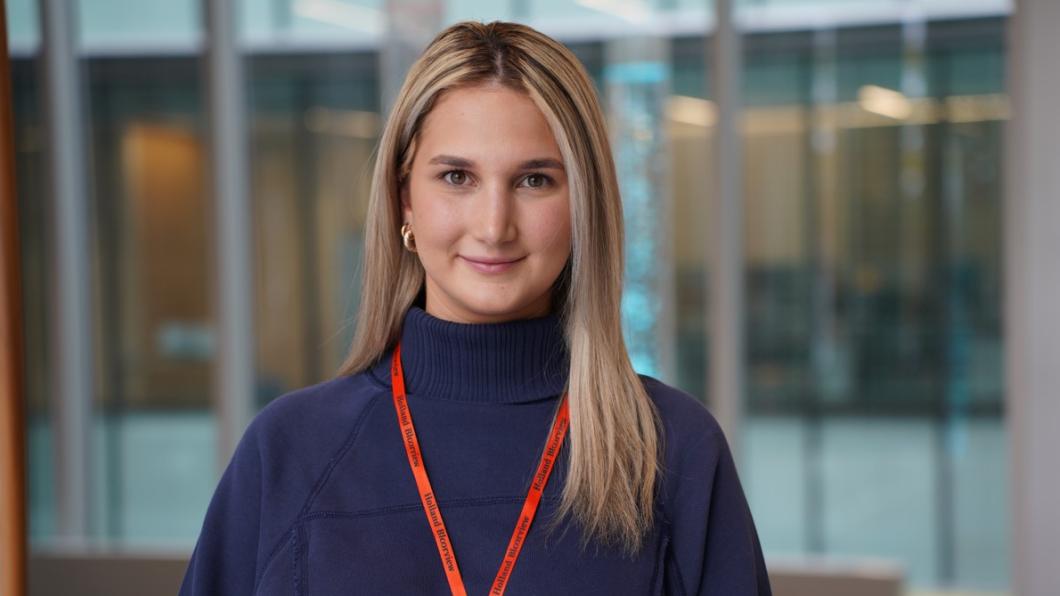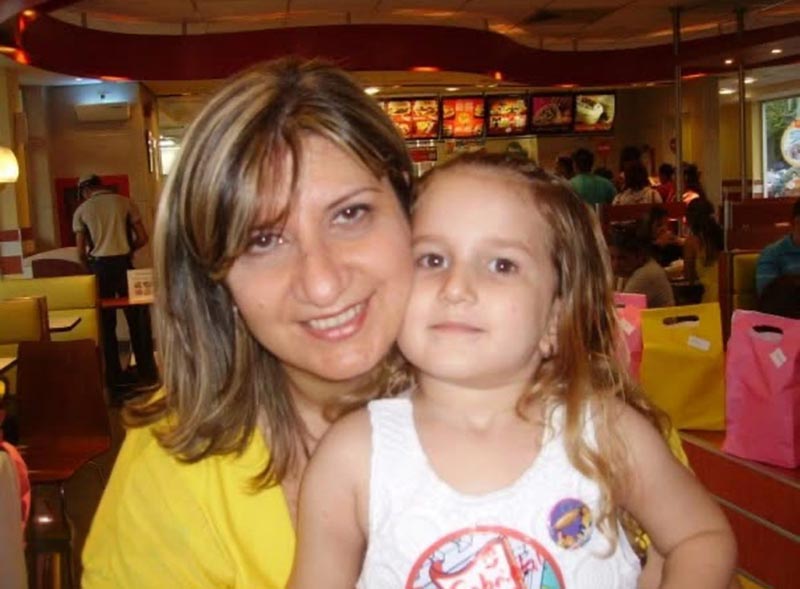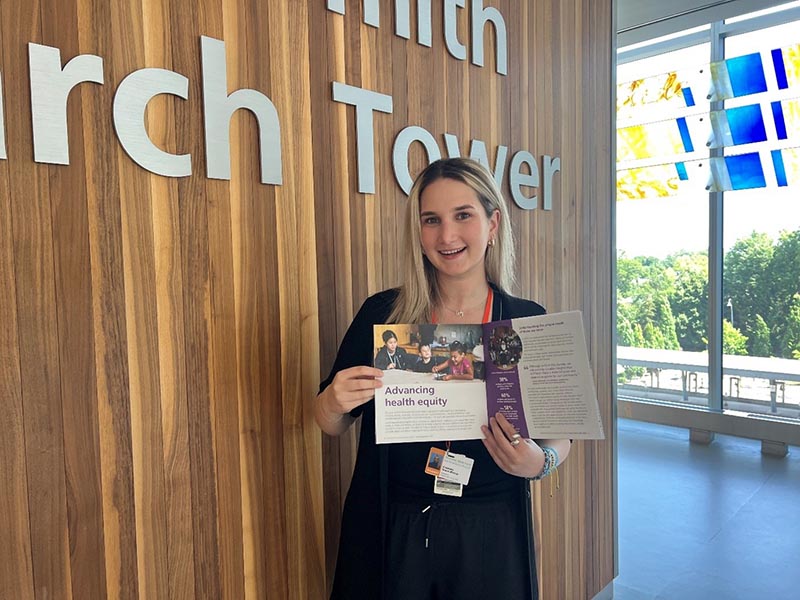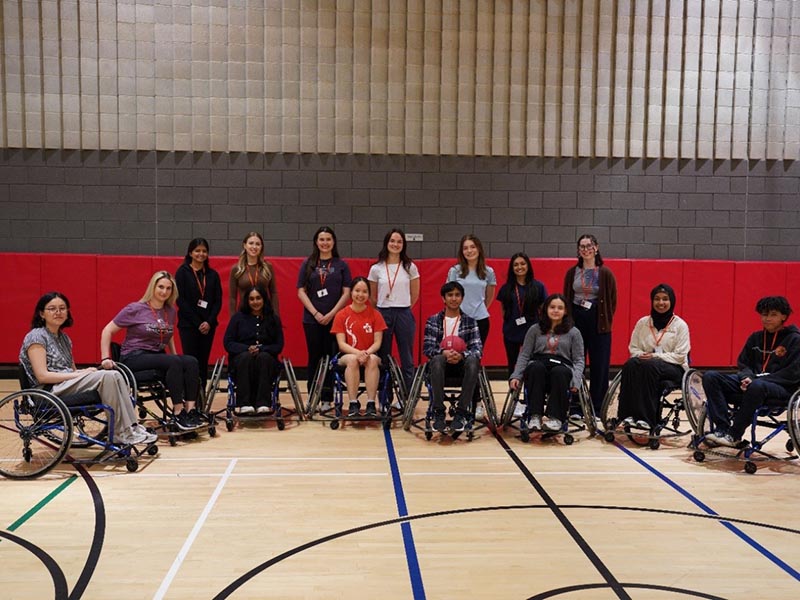
Gabriela Masri Ahmar shares how lived experience shapes her approach to inclusive childhood disability research
For Gabriela Masri Ahmar, the journey to the Bloorview Research Institute (BRI) at Holland Bloorview Kids Rehabilitation Hospital began with her family’s experience navigating the Canadian pediatric system. Gabriela moved to Canada from Venezuela at age 11 with her mother and witnessed firsthand the challenges her family faced —newcomers with limited English proficiency at the time — to access support for her niece, who has microcephaly and is non-verbal.

“I was young at the time, but those early experiences stayed with me,” Gabriela says. “They helped shape my desire to work towards a system that supports all families and children.”
Today, Gabriela is entering her fourth year of the Honours Integrated Science program at McMaster University, where she’s also completing an interdisciplinary minor in Latin American and Latin studies. Being Latina is an integral part of her identity, and it continues to shape how she engages with research and advocates for inclusive systems of care. She continues to stay engaged and involved with her community through various avenues.
“I’m always trying to guide research in ways that include diverse perspectives and voices,” she says.
Gabriela is among 17 undergraduate students selected from more than 1,200 applicants—a highly competitive process—for this year’s Ward Summer Student Research Program.
Finding her place in research
Gabriela found the opportunity she’d been searching for through the SOAR (Sparking student Opportunities for Advancing inclusive childhood disability Research) stream of the Ward Summer Student Research Program—funded by the Ward Family Foundation, Holland Bloorview Foundation donors and the Bloorview Research Institute.
She also received support through the Research and Academic Summer Internship (RASI), part of the University of Toronto’s Community of Support (COS) program, which provides mentorship, paid research opportunities and guidance to students from communities historically underrepresented in health and academic research.
“It sometimes felt like there wasn’t space for someone like me in pediatric research,” she says. “But through SOAR, I began to ask myself—why not me?”
Gabriela is working in the ACCEPT Lab under Dr. Melanie Penner on the ECHO AuDIO study, a national project aimed at improving access to autism diagnosis. Her specific focus is on analyzing qualitative data from interviews and focus groups with community pediatricians across five provinces.
“Gabriela brings a thoughtful lens to our research,” says Dr. Penner, senior clinician scientist and developmental pediatrician at Holland Bloorview and principal investigator of the study. “Her curiosity and commitment to equity have made her a valuable member of the team.”

“Using the Theoretical Domains Framework, I’ve helped code transcripts and develop belief statements to better understand the barriers and facilitators in community autism assessments,” Gabriela explains.
A meaningful experience
The goal of this work is to create community-based toolkits and strategies to support providers and make autism diagnosis more timely and equitable. For Gabriela, this is where her academic background, personal experiences and professional aspirations converge.
“This work is incredibly meaningful to me—it’s about supporting community health-care providers to provide a diagnosis and help families get the care they need in a timely manner, regardless of where they live in Canada.”
Gabriela has also found a strong sense of community at BRI.
“One of the highlights has been connecting with other students in the Ward program. Everyone is working on something different, but we’re all united by a shared goal: improving the lives of children.”
The weekly Lunch ‘n Learn sessions have helped her think critically about the broader impact of research and the importance of inclusive, equitable practices. Beyond the research setting, she’s also enjoyed getting to know her peers through group activities like wheelchair basketball—an experience that offered both fun and perspective.

“BRI has made me feel supported as both a learner and a researcher,” she says.
Gabriela hopes to pursue a career in pediatrics that combines clinical practice with inclusive research.
“This experience has shown me the real-world impact that research can have. I want to help ensure no child is left behind.”